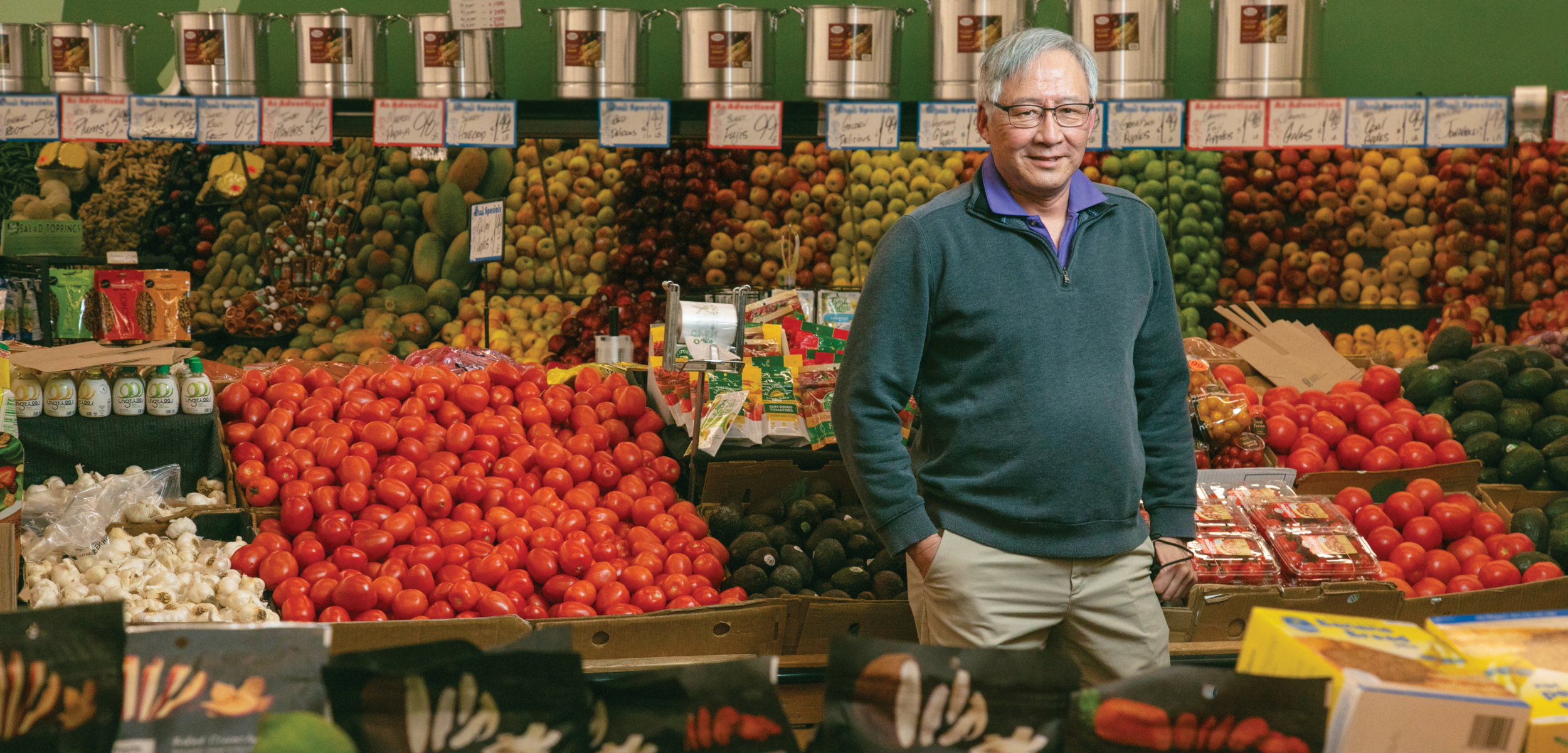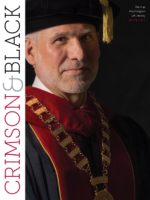
Longtime CWU Nutrition Professor David Gee has spent the past four years exposing the next generation of health professionals to a fresh approach for treating patients.
Instead of reflexively prescribing medicine to address health problems such as hypertension and type 2 diabetes, Gee wants doctors and nurses to know there are alternative treatment methods that target patients’ nutritional habits instead of treating the symptoms of their illness.
Since 2017, Gee has been leading a series of culinary medicine sessions that combines covering the clinical evidence supporting dietary approaches to disease prevention with presentations given by culinary experts on how patients can apply these approaches to their own diets.
Students participating in these sessions attend health-professional training programs at four institutions east of the Cascades, including Central. In a typical session, teams of three students from different disciplines prepare dishes fitting the dietary pattern discussed that day.
Gee explained there has always been a disconnect in higher education between medicine and nutrition, and his goal with the culinary medicine initiative is to change that dynamic. He says the partnership has gone a long way toward showing the importance of collaboration between programs.
“Health professionals and nutritionists have always been kept in separate silos, and they don’t typically interact until they get into a clinical setting,” said Gee, who recently completed his 40th year at the university. “When medical students are exposed to this nutritional information, they become much more committed to getting patients to change their diets, rather than prescribing them another new medication.”
As a way of bridging the gap, CWU has been offering more crossover courses in paramedicine, nutrition, and public health over the past few years. The other medical, nursing, and nutrition programs in Eastern Washington have adopted similar changes to their curricula.
The students being introduced to the culinary medicine approach have not yet graduated, but Gee has been encouraged by the early returns.
“We’re no longer talking about drugs; instead, we talk about the many health benefits that come from eating the right foods,” he said. “The key is we’re already beginning to see more positive outcomes. There’s a growing body of evidence that this approach works.”
Gee said he looks forward to seeing how the current crop of medical professionals will influence the future of health care in our state once they begin practicing. Another key element of the program is that it teaches people how to prepare food that tastes good and is good for them—a connection that is often missing from the modern approach to health care.
“We need to convince health care providers to link nutrition with food, and then refer their patients to a nutrition expert who can help them prepare tasty foods that are better for them,” said Gee, who recommends low-sodium plans like the DASH diet (Dietary Approaches to Stop Hypertension).
“Reducing medication and improving your diet can contribute to a significant change in your overall health,” he added. “With the DASH diet, we often see drops in blood pressure similar to almost any drug that is used to treat the condition. That’s one of the main goals of this culinary medicine initiative.”






comments powered by Disqus